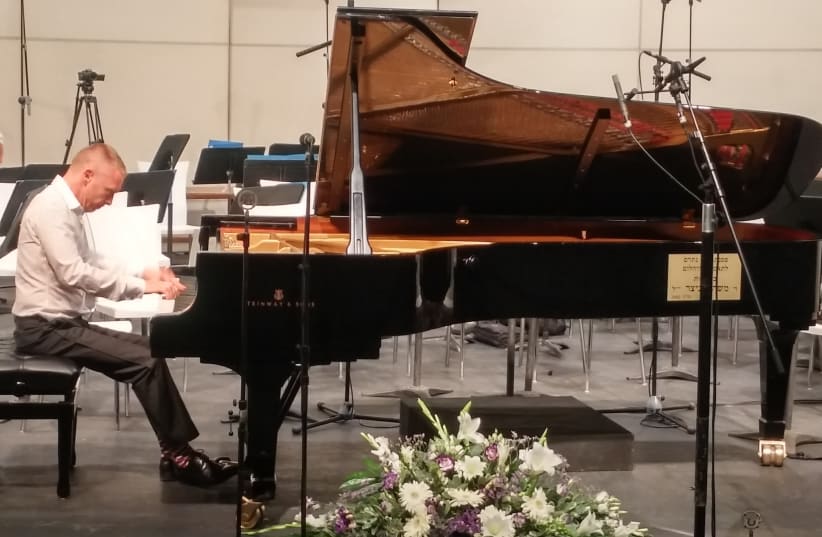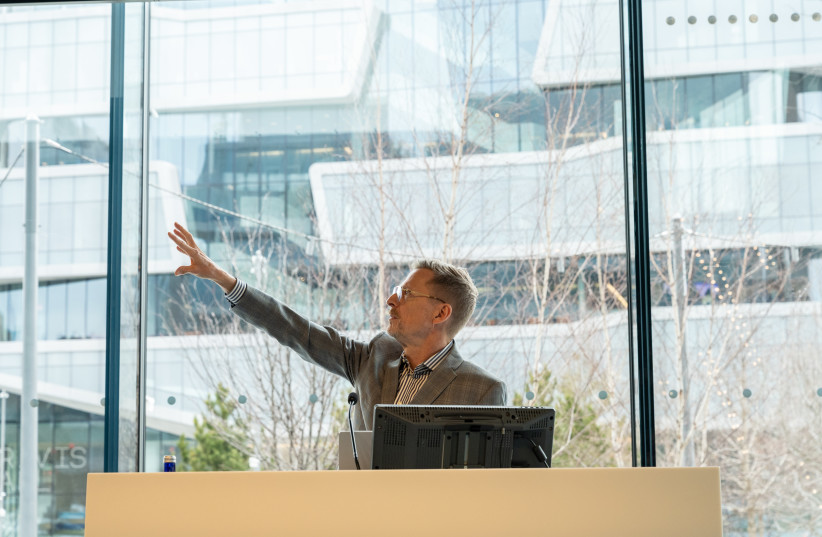When little Daniel Gortler, aged four, won a singing competition in Tel Aviv, the judge asked the diminutive “Prince of Israel” what he wanted to be when he grew up. Gortler had no doubt. “A cat,” he declared, enthusiastically.
Although he couldn’t have known it at the time, his answer was somewhat synchronistic: years later the competition hall would be torn down to make way for the Ramat Gan Safari Park; today a pride of lions roams right there, in the middle of an urban jungle.
Gortler did not grow up to be a feline in any shape or form, but he did continue on his winning musical streak. At seven he began piano lessons at the Conservatory of Music in Tel Aviv; at 13 he was deep into a recital when the lights suddenly all went out. The wunderkind’s reputation was burnished as he continued to play from memory during the blackout.
Many prizes later Gortler, having studied in Israel and Germany, became a professor of piano at Tel Aviv University, played with all of Israel’s orchestras under the baton of great conductors, including Zubin Mehta, and was guest artist with top orchestras abroad, including those of London, San Francisco, Germany and South Africa.
Twelve years ago, on a green card awarded for extraordinary artistic ability, he relocated to New York, while retaining his home overlooking the Mediterranean in downtown Tel Aviv.
Meeting the pianist
IT WAS on one of his extended trips home, to visit his ailing mother, that I met the pianist. I had taken dinner to a friend who was recovering from surgery; Daniel had popped in to say hello. He tucked into my fried liver and onions; I felt that it was not inappropriate to ask him to play us a melody as a fair exchange. The problem was, in an “only in Israel” twist, that it was the eve of Holocaust Remembrance Day; on such a night it felt completely wrong to enjoy a musical interlude.
But this is the Holy Land, where life stories twist and twirl in complicated flourishes that would make Mozart scratch out his scores in perplexity.
Gortler’s mom, Lily, is a survivor; born in Lviv she, together with her mother and her aunt, spent World War II in a pit dug under a wood-burning stove in a country house in a forest in Poland. Gortler’s grandmother cooked for the righteous Polish landlady in the middle of the night; during the day she joined her family under the floor. Lily, born in 1939, somehow knew not to cry as she spent her first years buried in a tiny clay dugout, waiting for the nocturnal knock on the stove above to announce it was safe to come up for air.
Then came the night of no knock. Followed by another day, and another night. After three nights with no food and no air the little family, about to starve to death, pushed away the stove in desperation. In the living room above they found an ashtray with a burning cigarette: an SS officer, hunting for the landlady’s son who was in the Resistance, had left the premises moments before. Twenty seconds earlier and they’d all have been dead.
After liberation the women went back to Lviv, where they reunited with Lily’s father, who had also miraculously made it through the war.
No one had the strength to face more ongoing antisemitism; in 1950 Lily, her parents, little sister Anya, grandmother and grandfather, and her aunt – the sole survivors of a huge family – came to a ma’abara (transit camp for new immigrants) in Israel. Even a hot, dusty tent with no water or electricity was infinitely better than what they had survived; the family settled in and flourished, and Daniel grew up to make music.
With a story like that it seemed eminently suitable to sit right up close and comfortable next to one of the world’s wonderful pianists as he emoted his way through the third movement of Beethoven’s funeral march on my friend’s grand piano, in a scene that I will never forget but could never adequately capture in words.
IN ANOTHER you-couldn’t-make-this-up twist, Gortler’s life partner is architect Charles Renfro of the world-renowned New York Diller Scofidio + Renfro firm.
Among its stunning projects are New York’s fabulous High Line, the renovations to the Lincoln Center and the expansion of MOMA, The Shed in Manhattan, Zaryadye Park in Moscow, a minute’s walk from the Kremlin and Red Square. “Wild urbanism” integrates the built and the natural in hybrid landscapes. Now Renfro is keen to bring his expertise to Israel.
After the High Line soared to success in the US, there have been copycat rails-to-trails projects around the world, notes Renfro, who claims that he couldn’t be happier about this development.
He has a vision of doing something similar here: if the mass transit system ever improves, some lanes of the Ayalon Highway could be cut back, he explains, reinstating the river. A parkway running the length of the banks would change the face and the pace of the city; bridges could lope over the remaining traffic lanes and stitch the city back together, with green cover flourishing over the jams below.
Renfro professes he’s in love with the youthfulness and agedness and scale of Tel Aviv; the way it weaves green and white; its food and art, performance and innovation, nightlife and beaches and vibrancy and arts. He is knocked out by the incredible lushness of the place. He’s less impressed by the bureaucracy and pace of development.
“Although the city planners are top-notch and envisage the correct scale of building with walkable districts and parks,” he says, “somehow developers rule the roost with enormous construction projects that don’t take into consideration the greater urban fabric.”
He is prepared to give advice for sustainable design to anyone who cares to listen. He has ideas for incredible projects in Tel Aviv as well as Jerusalem, including tree bridges and green roofs and juice bars that grow their own fruits on the premises.
Renfro, who’s also a professional clarinetist and archaeologist, is well positioned to provide us with an urban delight where we can escape from the smog and the brain fog of too much traffic and too many shouting politicians. Gortler can provide the musical accompaniment.
And Israelis of all shapes and sizes, from all sectors and believing in all the gods that watch over us, can chill in the heat of the sun, each man under his urban, sustainable shade.
What a lovely thought.
The writer lectures at Reichman University and Beit Berl College. peledpam@gmail.com

